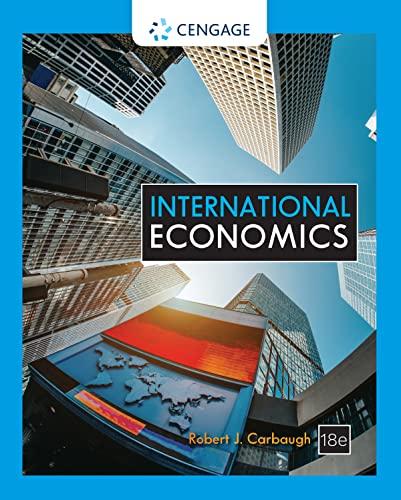In 2015, bank regulators determined that five banks were guilty of rigging the foreign exchange market. These
Question:
In 2015, bank regulators determined that five banks were guilty of rigging the foreign exchange market. These banks included Barclays PLC, Citigroup Inc., JPMorgan Chase & Co., Royal Bank of Scotland (RBS), and Union Bank of Switzerland (UBS). The banks agreed to pay $5.6 billion in fines to settle a foreign exchange manipulation probe among regulators in the United States and Europe.
The probe concluded that the banks manipulated the foreign exchange market for more than five years to increase their profits at the expense of their foreign exchange customers, sometimes threatening the market's integrity. The regulators ordered that these banks cease and desist from further violations and take efforts to implement and strengthen their internal controls and procedures.
The banks' misconduct fell into three categories. First, operating as a group, the banks attempted to manipulate a currency's benchmark that was widely used to set foreign exchange rates across the industry and asset classes. In particular, the banks manipulated the spot market's exchange rate between euros and dollars. Countless individuals and firms around the world rely on these rates to settle financial contracts. This reliance is founded on faith in the fundamental integrity of these benchmarks. The market only works if people have confidence that the process of setting these benchmarks is fair, not corrupted by manipulation by some of the largest banks in the world. Second, the banks sought to initiate stop-loss orders with customers so as to boost the banks' trading profits. A stop-loss order is placed with a currency broker to buy or sell a currency when it reaches a particular price. Finally, in electronic chat rooms, the banks permitted currency traders to share confidential information about customers, including identities and trades they were seeking to transact. The use of these instant messages allowed the traders to coordinate their buying and selling of currencies at the market close to manipulate foreign exchange prices in their favor.
In the currencies probe, the banks blamed the illegal conduct on a small group of traders and implied the problems were not systemic throughout their firms. The enforcement action by the regulators was intended as a signal to all market participants that wrongdoing and foul play in the foreign exchange market is unacceptable and will not be tolerated.
What do you think? What penalties should be placed on banks that rig the foreign exchange market?
Step by Step Answer:






